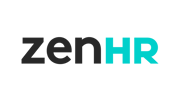
By now, you’ve probably heard the viral phrases such as “quiet quitting” and “the great resignation”. These trends gained popularity because of the frustration employees face when their work-life balance is disturbed. Now, a new trend has emerged in the industry: “quiet vacationing.”
What is Quiet Vacationing?
As the name suggests, it involves taking time off without informing your manager or requesting PTO but working remotely while on vacation.
Quiet vacationing is particularly popular among younger workers. About 56% of Gen Z and Millennial workers have said they’ve participated in the trend simply because they feel pressured to appear productive and meet tight deadlines while still valuing work-life balance.
Why is that? According to a survey, nearly half of respondents, 61% of millennials and 58% of Gen Z, said they felt anxious about asking for personal time off (PTO), and when they do, they still feel pressure to remain available.”
Does ‘Quiet Vacationing’ Mean You Have a Bad Culture?
If you feel employees are “Quiet Vacationing”, it’s time to take a look at the work culture.
When employees feel that they can’t be honest and have to keep secrets from managers or leaders to take PTO (a benefit that they are entitled to), it should be a warning bell that the company culture isn’t everything it should be.
This means that employees don’t believe their organization encourages workers to disconnect and recharge.
It’s up to HR and business leaders to encourage a sustainable approach to work-life balance that allows employees to fully disconnect without fearing repercussions.
End Quiet Vacationing & Encourage PTO
Research and evidence show that unplugging from work and actually taking time off makes you more productive, increases your performance, and reduces your stress. It’s better for your well-being and results in better and more productive employees.

Amanee Hasan
Amanee Hasan is a Senior Content Writer at ZenHR, an award-winning and top-rated HR solution that offers world-class HR software services in the MENA region. Her main focuses are SEO, UX writing, copywriting, and creating content highlighting the latest HR trends, and gives organizations and individuals the tools they need to create successful work environments where people thrive.



